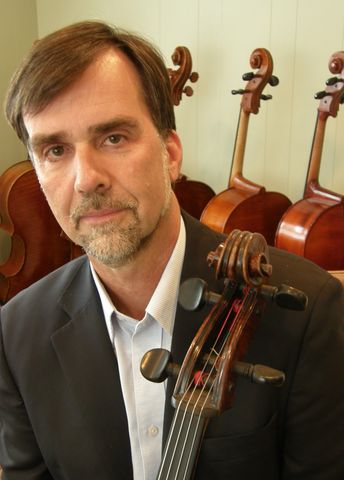
Playing the cello requires physical engagement, technique and patience. For beginners, learning how to play this musical instrument can seem like a huge challenge. However, with the right teacher and practice habits, anyone can learn to acquire the skills they need to become a talented musician. To prevent any bad habits from forming, use this guide for some of the do's and don'ts of learning to play the cello.
Do:
Warm up before playing or practicing.
Warming up is a significantly underrated exercise all musicians should practice. Your fingers, arms and wrists all need attention to avoid injury and improve dexterity. Prior to practicing, get in the habit of stretching your fingers, wrist, arms, shoulders, neck and back. Start with the scales to prepare your body for practice.
Cultivate a personalized practice space.
Where you practice changes how you practice. If you can't concentrate where you practice, it's likely you won't have a quality session. To get the most out of your time, create a personalized area that has everything you need for a distraction-free experience. Make sure this space is clutter-free, with a tuner, rosin, stand, music, pencil, and an ergonomically-friendly seat before you start.
Practice daily.
Listen to music you are playing. Record or take notes at lessons to review while at home.
Don't:
Rush in to playing music right away.
It's normal to want to progress at a quick pace when you're learning something new. However, learning cello is a process that takes time. During the first few weeks, it's essential to learn the fundamentals, including understanding the parts and accessories of your musical instrument, proper cello and bow holds and basic techniques. Establishing the proper foundation ensures you'll have fewer bad habits to correct down the road.
Overdo practice sessions.
Slow, careful practice is the key to progress, but when you practice for too long or too often, it can result in burn-out, boredom and overuse injuries. Learning how to play the cello is about a lot more than technique.
Along with muscle memory, you will need to develop an ear for pitch and allow yourself enough downtime for your body and mind to absorb all the new information. Practices should be limited to 30 to 60 minutes, five days a week, capping at 30 minutes if you're a beginner.
Whether you're interested in purchasing or renting a bowed string instrument, The String House in Rochester, NY, is a one-stop shop for your musical journey. Family-owned for over 50 years, this full-service shop specializes in pairing musicians of all levels with instruments that match their needs and playing style. Their friendly and helpful staff can help you shop for quality violins, violas, cellos, and basses whether you live locally or on the other side of the world. Their repair shop provides free estimates. All of their instruments are in excellent condition and professionally set up. Learn more about their services, visit the website or call (585) 442-9272.
About the Business
Have a question? Ask the experts!
Send your question

